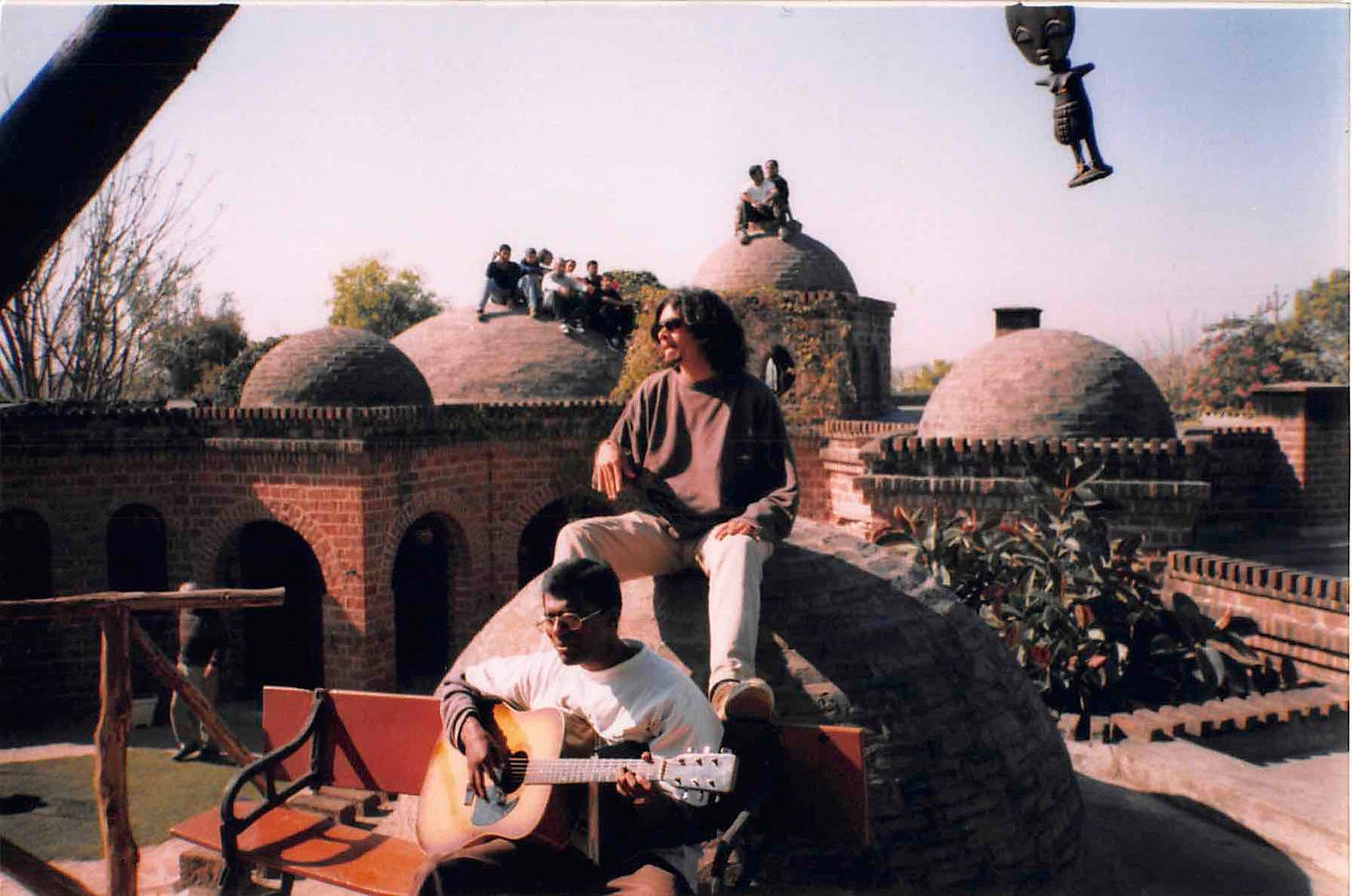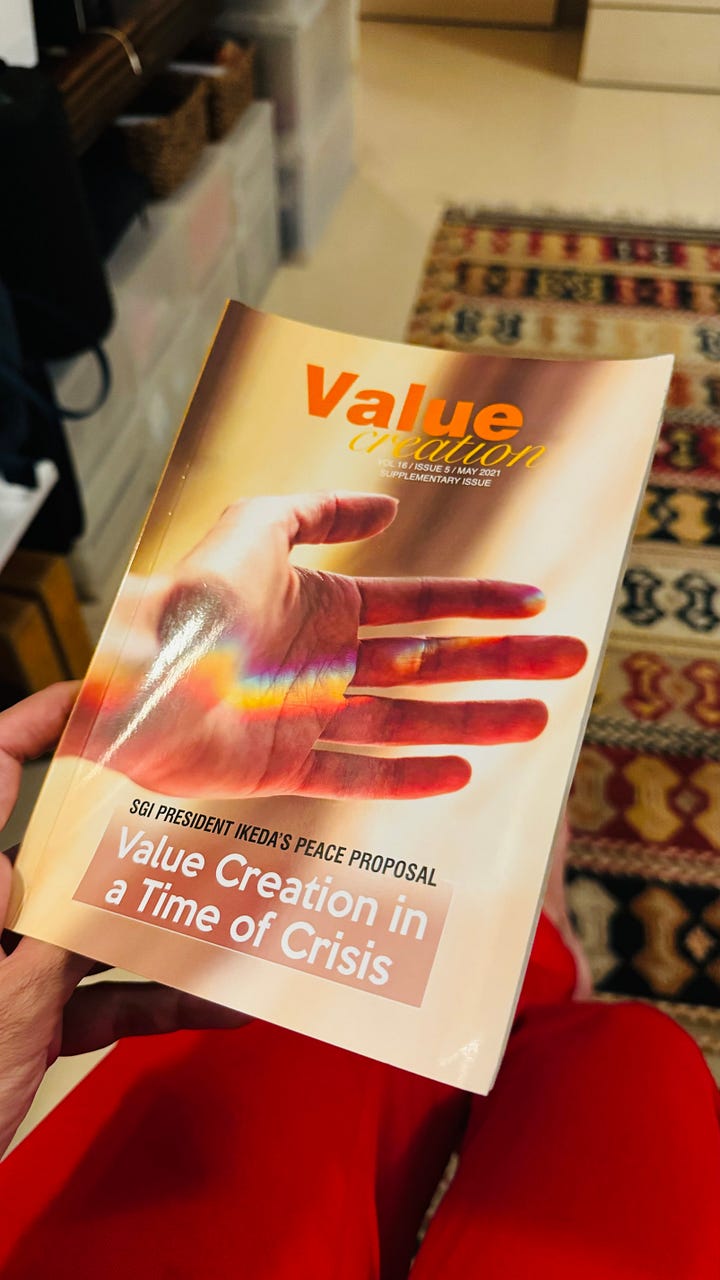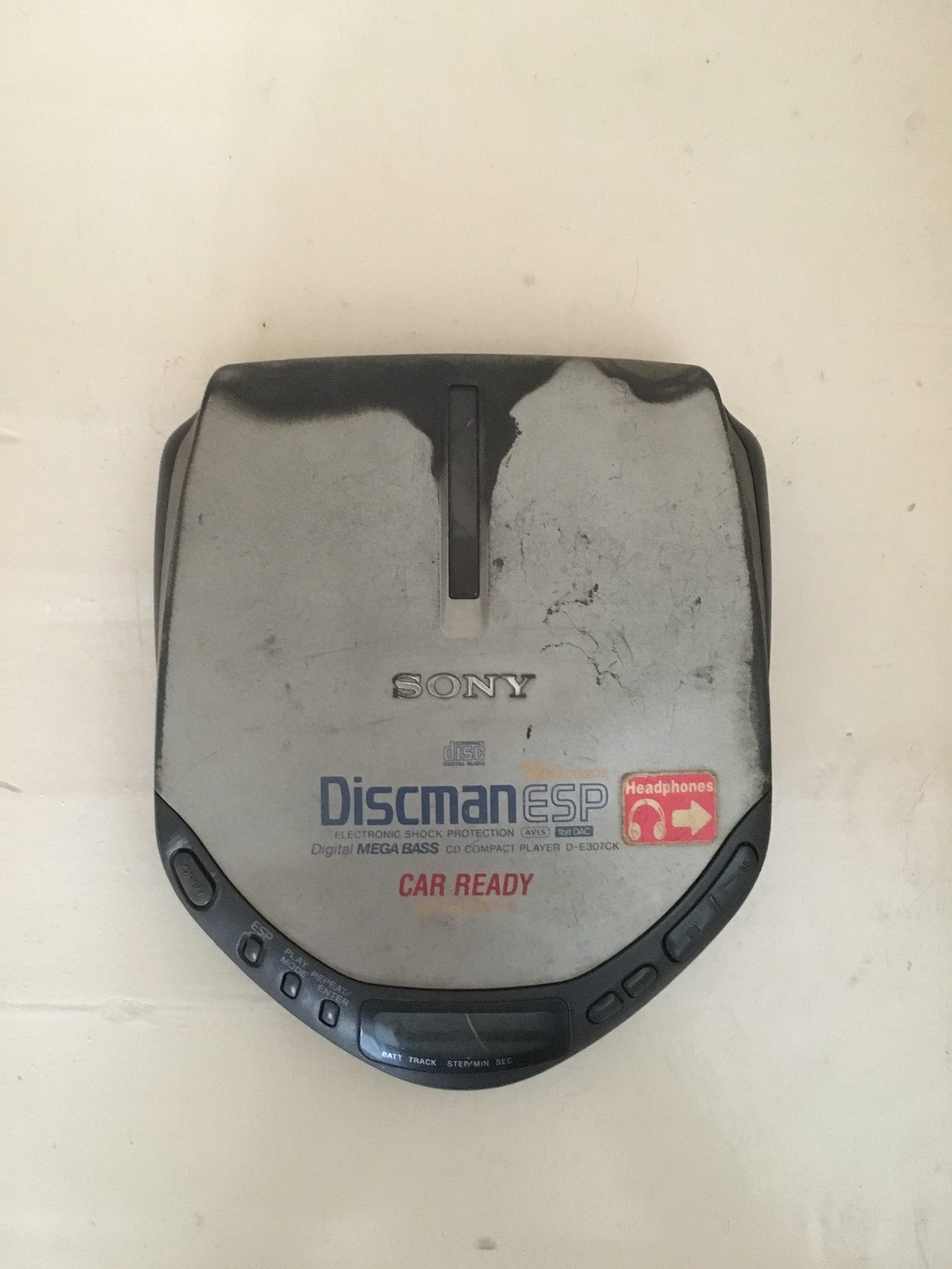Dearest Yet Untitler,
Long ago, when I entered college, it was fashionable to listen to Pink Floyd. In the hallways of the notorious Mukarji West hostel inside New Delhi’s St. Stephen’s College, your street cred pretty much depended on the stuff you listened to, so you learned to rattle off the names of the usual suspects - Tom Petty, Mr. Dylan; all those hall-of-fame sort of people - to sound cool when asked.

I did this too.
What I found was that even while pretending to like these then-alien cultural artefacts from way-out-west, I invariably started developing a personal relationship with some of them.
Take Pink Floyd’s ‘Comfortably Numb’, for instance. When one of my closest friends attempted suicide - this song was where I took my incomprehension and tried to decipher what had happened. The song spoke to me. Whatever the bands’ intent may have been when they wrote the song, I read my own meaning into it. At the very least, it invited me to step into my friend’s head, that seemed to be full of so much stuff different from the contents of my own.
That was nearly twenty five years ago. I didn’t listen to ‘Comfortably Numb’ much in the interim, but I always associated it with feelings of incomprehension, sadness and helplessness.
Now, suddenly, this song has resurfaced before me in a very different form. The other day, a friend in London sent across this re-rendering of the ‘Comfortably Numb’ by rapper and heavy-metal artist Ice T and his band Body Count.
I was very taken by how topical his re-rendering is, with the middle-east currently blowing up and all. The old song about disconnection and emotional numbness stands reappropriated as a social commentry responding to the zeitgeist. What I find interesting is that I can still register incomprehension, sadness and helplessness when I read between the lines.
I’ve been thinking about the health of the world all week, and while thinking about it, Body Count’s version of ‘Comfortably Numb’ has been playing on repeat in my head. There’s an urgency in Ice T’s singing that I’m hearing everywhere. I heard it loudest the trailer to Asif Kapadia’s documentary - ‘2073’. It’s an urgency that desperately trying to get us to see where we’re headed and to change course before the Titanic hits the iceberg (Kapadia’s documentary upturns this metaphor on its head though; you’ll see what I mean when you watch the trailer).
This whole week I found myself thinking about shifting meanings, especially in the realm of music that’s meant something to me. I thought of Elton John’s ‘Tiny Dancer’, which first came to my attention via Cameron Crow’s coming-of-age film ‘Almost Famous’.
In ‘Almost Famous’ there’s a (the?) scene where a song serves as the trigger to bring a bunch of road-weary rock ‘n rollers and their posse back on the same page after weeks of fighting, arguments and heartbreak. If you’ve seen the film, I’ll bet you remember it well.
‘Almost Famous’ was set in the 70s, well before, well, everything that seems to have been domino-ing to collapse since 9/11. Lovingly documenting key moments of growing up, ‘Almost Famous’s’ use of Elton John’s ‘Tiny Dancer’ was a promise of joy, of how music could bring us back to ourselves from anything.
Today, in 2024 - the same song is being used to chilling effect in the latest instalment of the John Wick saga. Check out the trailer of ‘Ballerina’, especially around the 1:00 timestamp.
Ballerina You must've seen her In the audi-to-ri-um...
It’s hard to believe it’s the same song, and I’m still reeling from how anyone could pull this new film’s violent, dystopian tones from the song that made me look forward to my 20s with shining eyes full of hope and promise!
Good art and its many meanings
I’l step aside from apocalypse and dystopia for a moment and speak about…well, art. How fertile is good art! I arrived at this thought as I stuck with Elton John for a bit in the course of this instalment.
While searching for other Elton John covers on YouTube, here are two noteworthy versions of his song ‘Rocket Man’ that I found":
Hearing the 14 year old Sara James’ version really moved me because I remember being moved by ‘Rocketman’ - its simultaneous melancholy and jubilation - at a similar age. Like Goscinny and Uderzo’s ‘Asterix’ - this is a song I have appreciated in different ways at different aged. But I also find that with every cover version of it I hear, I get further affected in new, different way.
I consider - songs like ‘Rocketman’ seem to take on the times, the personas and the emotions of the both the people who are singing and those listening to it. I found this best illustrated in this documentary’s depiction of Leonard Cohen’s ‘Hallelujah’ and how its journey over 40 years has draw out newer meanings and hidden layers to the song. The film’s on Apple TV+ and I highly recommend it.
“About a Boy and His Dog”
Farrukh Dhondy once told me that Steven Spielberg’s E.T the Extra Terrestrial, was nothing but a film about ‘a boy and his dog’.
Today, I’m remembering Farrukh’s utterance again in the light of shifting meanings as I age, as the world ages. I like this idea that if you peel enough, boil enough, a piece of art is left simmering as a reduction in the pan, pared down to an essence that can be surprising.
Then again, maybe this is the wrong metaphor. Maybe it’s us changing and not the art, with art being the mirror reflecting us back at ourselves. Maybe, if I can ever get Ananya and Aahana to watch E.T, they’ll tell me that it’s not about a boy and his dog but about kids being denied phones by adults (they’re 10, and sometimes I think this is all they think about!)
I believe in the principle of art mirroring our times, but I do that we don’t recognise this enough as a two way street. I feel that our dystopian narratives are over-amplified, I feel our fears currently have louder voices than our hopes in the culture we consume. AND I DISAGREE.
Miyazaki to the rescue
Counter-narrative-of-hope types like myself find ourselves pretty lonely in the current dystopian landscape of cultural production. To be honest, I found myself sliding towards despair while writing this instalment, but thankfully, I had been catching up on NHK’s four-art documentary on the legendary animator Hayao Miyazaki over the past few days and the man himself stepped in to counter my downslide.
In part 3 of the series, there’s a bit around 20:15, when Miyazaki reflects - stating:
“These days fantasy films face difficult times. When people are in high spirits and not aware that the end is near, that’s a good time to make fantasy films. Nausicaä of the Valley of the Wind for instance (laughs). The question is, what should we make in bad times?”
Towards the end of the same segment, the documentary shares how Miyazaki and his son Goro were in the thick of film production when the 2011 Tohuku earthquake struck, provoking Miyazaki to reflect even harder on his question. Studio Ghibli was forced to cease production for reasons of safety. Everyone seemed to agree that it was a good idea…
…except Miyazaki.
Like a headmaster chiding petulant students, he’s filmed bluntly telling his production staff that work will carry on. Later at a press conference, he shares the impetus behind his position, with which his son Goro concurs:
“All we can do at a time like this is to keep making movies”
Of course, Goro doesn’t mean making just any movie. He means - “All we can do at a time like this is to keep making Miyazaki movies that always reaffirm our faith in the world.”
This, I agree with.
When India was at the grip of crackdowns against anti-CAA and anti-NRC protests, my friend Ankur Tiwari responded with this amazing song that amplified the need for kinship, for opposing oppression and for unity against divisive forces.
At a time when huge and dangerous rifts are widening between Israel, the Palestinian state and now Iran, my friend Bharatbala shared this video in which he reaffirmed his own commitment to the ideals of peace as postulated by Gandhi.
There’s a project I’m working on that’s burdened with lots of obstacles between where we’re at and its realisation. But, the core theme of the project is peace and humanism. In the face of every dystopian narrative I encounter, I will pour every bit of myself into its realisation.
This is all I can do in a time like this. Thank you, Mr. Miyazaki.
And thank you for listening, dear Yet Untitler.
I wish you peace.
Lots of love
V
PS. Is there a counter-narrative you have that stands against the times; your battle cry for something better? What is it? I want to know.
PPS. I’ll leave you with Jacob Collier’s new, warm hug to the world, which he gives from a very cold place!








Great article, I found the tiny dancer use very interesting. Another great cover is Johnny Cash's version of hurt. Like Jordan Peele said, the difference between horror and comedy is the music.